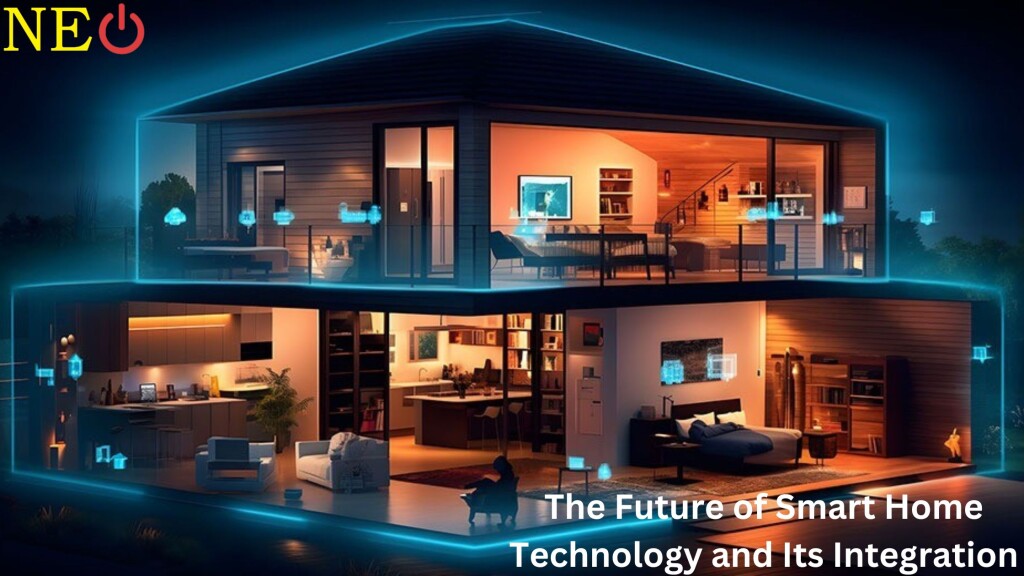Smart home technology has come a long way since the early days of simple automation. Today, our homes are becoming more connected, intuitive, and efficient, offering unprecedented levels of convenience and control. As we look to the future, the integration of smart home technology promises to revolutionize the way we live, blending seamlessly with our daily routines and boosting our overall quality of life. In this blog, we will explore the emerging trends, innovations, and potential impacts of smart home technology, and how it is set to shape our homes in the years to come.
Table of contents [Show]
The Evolution of Smart Home Technology
The concept of a smart home is not new, but recent advancements have significantly accelerated its evolution. Initially, smart home devices operated in isolation, with limited interconnectivity and functionality. Today, we are witnessing the rise of integrated systems that communicate and work together harmoniously. This shift is largely driven by advancements in artificial intelligence (AI), the Internet of Things (IoT), and wireless communication technologies.
AI plays a crucial role in making smart homes truly intelligent. Machine learning algorithms enable devices to learn from user behavior and preferences, providing personalized experiences and optimizing energy consumption. IoT connects a wide array of devices, from lights and thermostats to security cameras and kitchen appliances, allowing them to share data and respond to real-time inputs. Wireless communication technologies like 5G enhance the speed and reliability of these connections, enabling faster and more seamless interactions between devices.
Emerging Trends in Smart Home Technology
Voice Control and Natural Language Processing: Voice assistants like Amazon Alexa, Google Assistant, and Apple's Siri have become household staples, allowing users to control their smart devices with simple voice commands. The future will see even more advanced natural language processing capabilities, enabling more nuanced and conversational interactions with our smart homes.
Energy Efficiency and Sustainability: Smart home technology is increasingly focusing on sustainability. Advanced energy management systems can monitor and optimize energy usage, reducing waste and lowering utility bills. Solar power integration, smart grids, and energy storage solutions will further enhance the efficiency and sustainability of our homes.
Health and Wellness: The integration of health and wellness features into smart home systems is a growing trend. From air quality monitors and smart lighting that mimics natural daylight to sleep tracking and fitness devices, smart homes will play a significant role in promoting healthier lifestyles.
Enhanced Security: Home security is a primary concern for many homeowners, and smart technology is continuously improving in this area. Future advancements will include more sophisticated security cameras with facial recognition, smart locks with biometric authentication, and comprehensive home monitoring systems that can detect and respond to potential threats.
Interoperability and Standardization: One of the biggest challenges in smart home technology has been the lack of standardization, leading to compatibility issues between devices from different manufacturers. Efforts are underway to establish universal standards, such as the Connectivity Standards Alliance's Matter protocol, which aims to ensure seamless interoperability between smart home products.
The Impact of Smart Home Integration
The integration of smart home technology is set to transform our lives in several profound ways:
Convenience and Automation: Smart homes will take convenience to new heights by automating routine tasks. Imagine waking up to a house that has already adjusted the thermostat to your preferred temperature, brewed your coffee, and started your favorite morning playlist. Automation will save time and simplify daily routines, allowing us to focus on more important activities.
Cost Savings: Energy-efficient smart home systems can significantly reduce utility bills. Automated lighting, heating, and cooling systems that adapt to occupancy and weather conditions will minimize energy wastage. Additionally, smart appliances that optimize their operations can lead to further cost savings.
Improved Quality of Life: Smart homes can enhance our quality of life in numerous ways. Personalized lighting and climate control can create more comfortable living environments. Health monitoring devices can provide valuable insights into our well-being, while smart entertainment systems can offer immersive and tailored experiences.
Aging in Place: For the elderly and individuals with disabilities, smart home technology can enable greater independence and safety. Voice-controlled devices, automated medication reminders, and fall detection systems are just a few examples of how smart homes can support aging in place.
Environmental Impact: By optimizing energy usage and integrating renewable energy sources, smart homes can contribute to a more sustainable future. Reducing our carbon footprint and minimizing resource consumption are essential steps towards combating climate change.
Conclusion
The future of smart home technology and its integration holds immense promise. As advancements in AI, IoT, and wireless communication continue to evolve, our homes will become more connected, intuitive, and efficient. The benefits of smart home integration, from increased convenience and cost savings to improved quality of life and environmental sustainability, are substantial. As we adopt these innovations, we are not only enhancing our living spaces but also paving the way for a smarter, more sustainable future.








